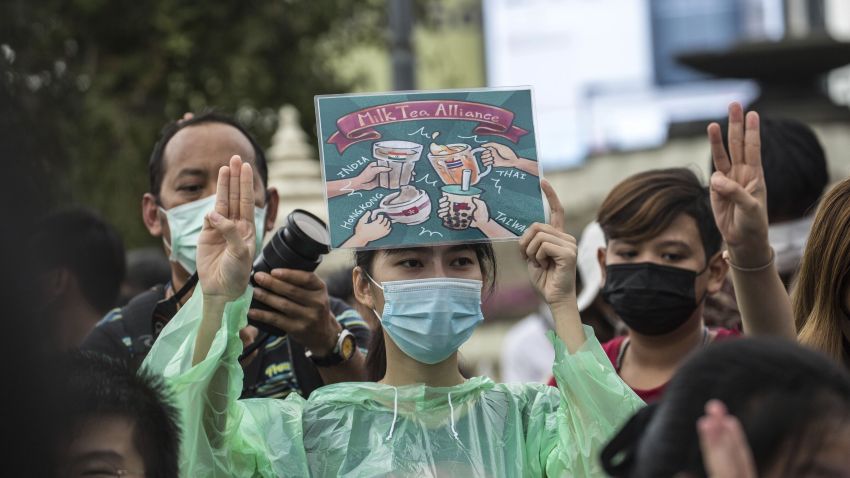Loading your audio article
Tea and milk beverages are a popular social drink in many parts of the world, whether shared at gatherings with friends or posted online to social media platforms in colorful photos. In Asia, they range from Hong Kong tea strained through stockings and tapioca-topped Taiwanese boba to Thai tea sweetened with dollops of condensed milk.
The spirit of gathering together that milk tea brings out among its enthusiasts gave rise to the internet hashtag that named the Milk Tea Alliance, which beginning in 2020 jumpstarted a transnational community of dissidents across the Asia-Pacific region, from Thailand and Taiwan to Hong Kong and Myanmar. This virtual community built around milk tea has brought together citizens critical of censorship and nationalism, in much the same way that tea shops and coffeehouses do, with the low barrier to entry allowing for a bigger tent of participants.
But in addition to a low barrier to entry, these virtual networks have low levels of cohesion, in large part because of the risks of leaving behind an online “paper trail” of personal information that authorities can get hold of. Thus, milk tea drinkers across the region have created ad-hoc assembly points in real life where they can congregate and disseminate information at will, while protecting themselves and their identities.

